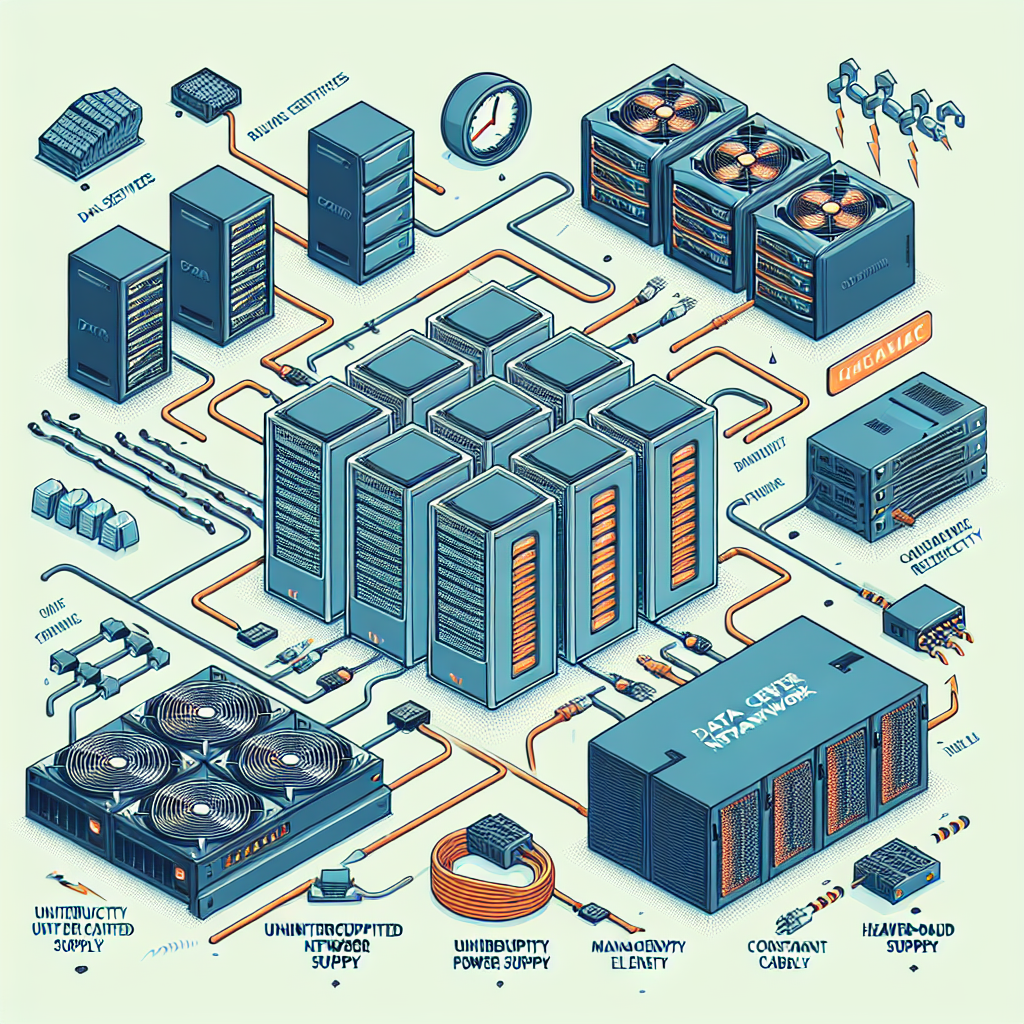Your cart is currently empty!
Key Components of a Robust Data Center Network Infrastructure

A data center network infrastructure is a crucial component of modern businesses, allowing for the seamless flow of information and data between various systems and applications. A robust network infrastructure is essential for ensuring high performance, reliability, and security for a data center. There are several key components that make up a strong data center network infrastructure, each playing a vital role in ensuring the smooth operation of the data center.
1. Network Switches: Network switches are essential components of a data center network infrastructure, acting as the central point for connecting all devices and systems within the data center. Switches allow for the efficient routing of data packets between devices, enabling fast and reliable communication between servers, storage devices, and other network equipment.
2. Routers: Routers are another critical component of a data center network infrastructure, providing the connection between the data center and external networks such as the internet. Routers help to route data packets between different networks, ensuring that data is delivered to the correct destination in a timely manner.
3. Firewalls: Firewalls are essential for ensuring the security of a data center network infrastructure. Firewalls help to monitor and control incoming and outgoing network traffic, filtering out potentially harmful data packets and preventing unauthorized access to the data center network.
4. Load Balancers: Load balancers are used to distribute incoming network traffic across multiple servers in a data center, ensuring that no single server becomes overloaded and causing performance issues. Load balancers help to optimize the performance and availability of applications and services within the data center.
5. Network Monitoring Tools: Network monitoring tools are essential for monitoring the performance and health of a data center network infrastructure. These tools provide real-time visibility into network traffic, bandwidth usage, and device performance, allowing for proactive monitoring and troubleshooting of network issues.
6. Redundant Network Connections: Redundant network connections are essential for ensuring high availability and reliability of a data center network infrastructure. By implementing multiple network connections and paths, data centers can ensure that network traffic can be rerouted in the event of a network failure, minimizing downtime and ensuring continuous operation.
7. Scalability: A robust data center network infrastructure should be designed with scalability in mind, allowing for easy expansion and growth as the data center’s needs evolve. Scalable network infrastructure allows businesses to add new servers, storage devices, and applications without disrupting the existing network architecture.
In conclusion, a robust data center network infrastructure is essential for ensuring the performance, reliability, and security of a data center. By incorporating key components such as network switches, routers, firewalls, load balancers, network monitoring tools, redundant network connections, and scalability, businesses can build a strong and resilient network infrastructure that can support their data center operations effectively. It is essential for businesses to invest in a robust data center network infrastructure to ensure the smooth operation of their data center and support their business growth and success.

Leave a Reply